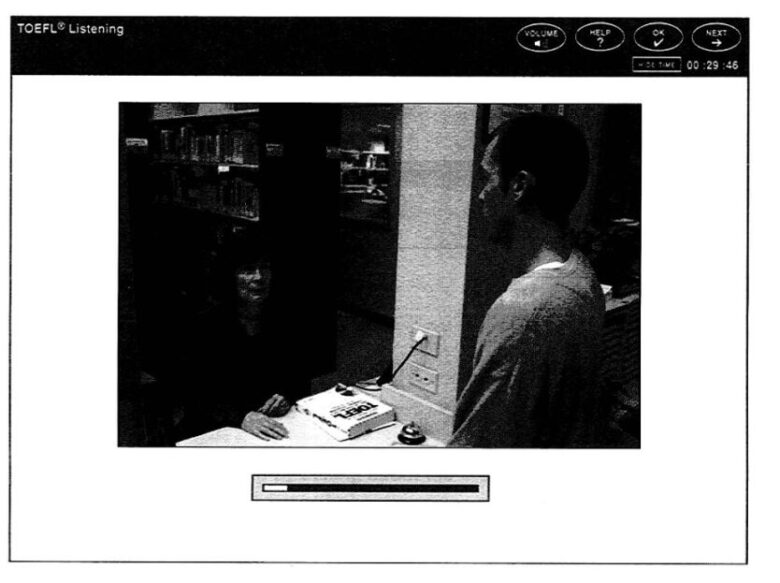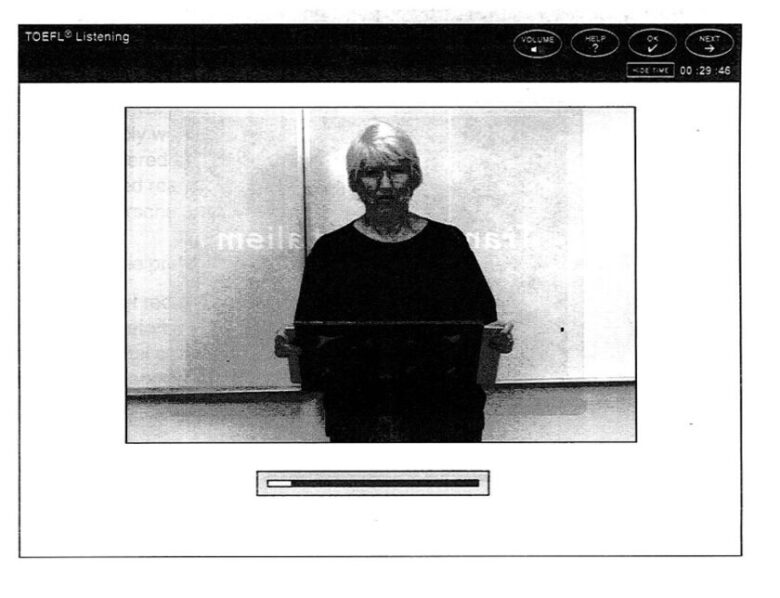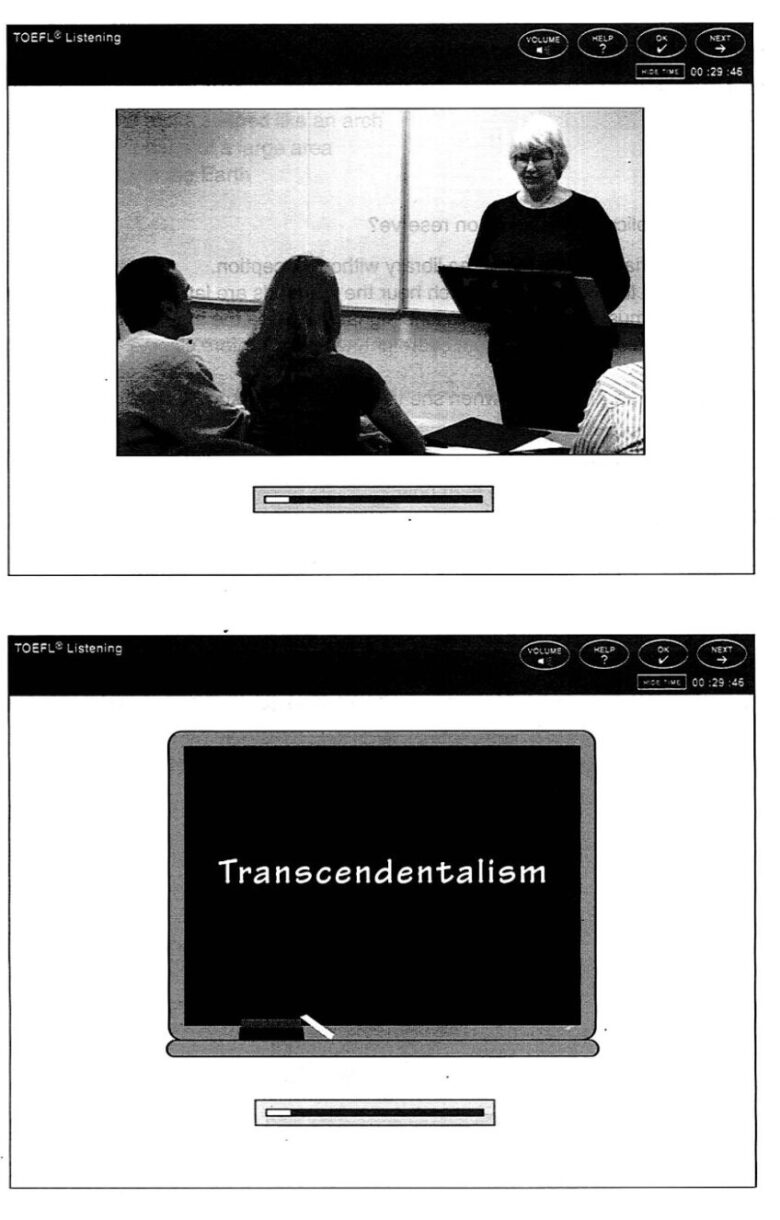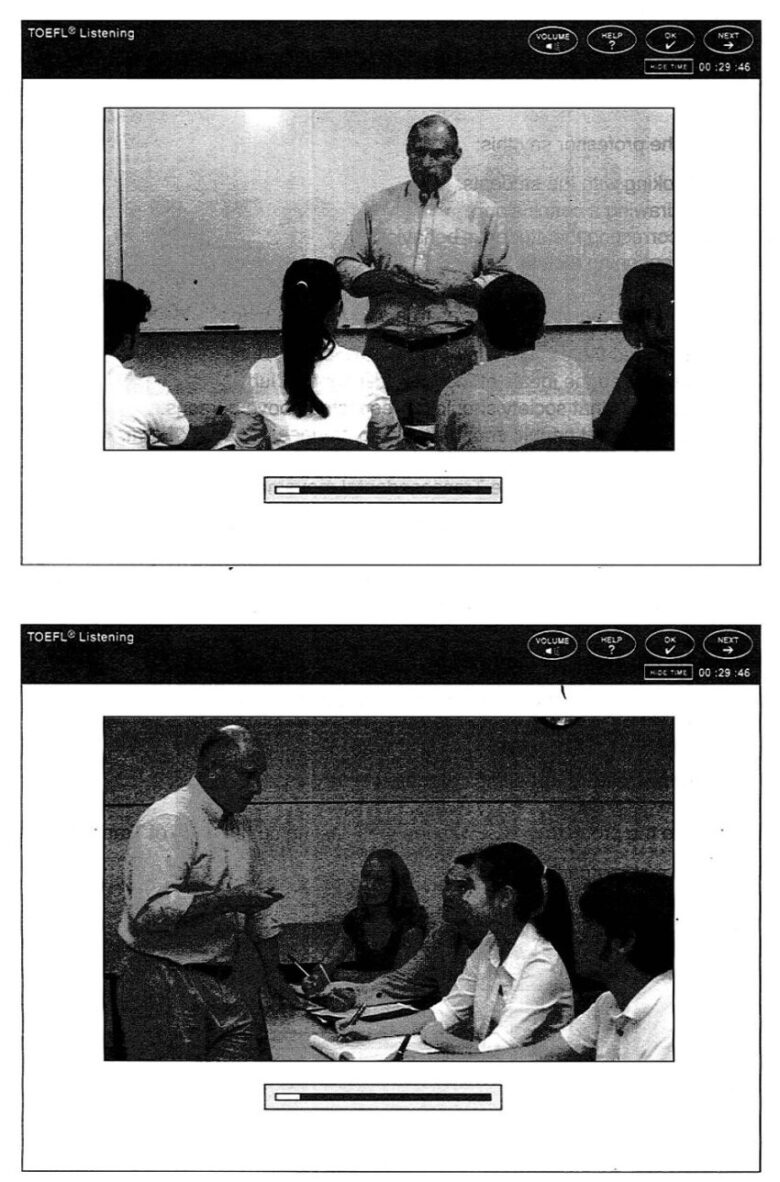Listening 7 “Library ”
35. What does the man need from the librarian?
CD A DVD player
CD Material for a class
CD Research by Dr. Parsons
CD His student ID
36. What is the man’s problem?
CD He has to study for an important exam.
CD He needs to prepare for a class discussion.
CD He owes a fine at the library.
CD He does not own a DVD player.
37. What does the man feel when he says this:
CD Amused
CD Worried
CD Confused
CD Interested
38. What is the policy for materials on reserve?
CD The materials cannot leave the library without exception.
CD There is a ten-dollar fine for each hour the materials are late.
CD Students must show the professor’s signature to use the materials.
CD Materials may be checked out overnight two hours before closing.
39. What does the librarian imply when she tells the man to return at nine o’clock?
CD She will see the man after work.
CD The library probably closes at eleven.
CD She is too busy to help the man now.
CD Her supervisor will be there at that time.
Listening 8 “Literature Class’
40. What does this lecture mainly discuss?
CD Transcendentalism
CD Puritanism
CD Ralph Waldo Emerson
CD Nature
41. Why does the professor say this?
CD She is joking with the students.
CD She is drawing a conclusion.
CD She is correcting the students’ behavior.
CD She is reasoning aloud.
42. According to the professor, what was true about the Puritans?
CD They stressed the essential importance of the individual.
CD They supported the ideals of the Transcendental Club.
CD They believed that society should be respected above persons.
CD They thought that people should live in communes like Brook Farm.
43. Why did the church oppose the Transcendental movement?
CD The authority of the church would be challenged by a code of personal ethics.
CD The leaders of the Transcendentalists were not as well educated as the clergy.
CD Church members were competing with Transcendentalists for teaching positions.
CD Professors at Harvard College convinced the church to.support their position.
44. Why did the professor mention Walderl?
CD It is probably well-known to many of the students in the class.
CD It is considered an excellent example of Transcendental literature.
CD It is required reading for the course that she is teaching.
CD It is her personal favorite of nineteenth-century essays.
45. According to the professor, what was the most lasting contribution of Transcendentalism? CD Educational reorganization
CD Religious reformation .
CD Experimental communities
CD Political changes .
Listening9 “GeneralScience Class”
46. What is this discussion mainly about?
CD A model of the universe
CD Interpretations of facts
CD A definition of a hypothesis
CD The scientific method
47. Why did the professor give the example of the ancient Egyptians?
CD To explain the rotation of the Earth and the Sun
CD To prove that facts may be interpreted differently
CD To present a fact that can be verified by the students
CD To discard a model that was widely accepted
48. Why does the professor say this:
CD He is asking whether students need repetition.
CD He is beginning a review of the process.
CD He is complaining because students don’t understand.
CD He is making a suggestion before he proceeds.
49. According to the professor, what did Kepler do to verify his theory of planetary motion?
CD He made predictions based on the model.
CD He asked other scientists to make predictions.
CD He used prior observations to test the model.
CD He relied on insight to verify the theory. .
50. What can be concluded from information in this discussion?
CD A model does not always reflect observations.
CD A model is not subject to change like a theory is.
CD A model is considered true without doubt.
CD A model does not require further experimentation.
51. What technique does the professor use to explain the practical application of the scientific method?
CD A summary .
CD An example
CD A prediction
CD A formula





